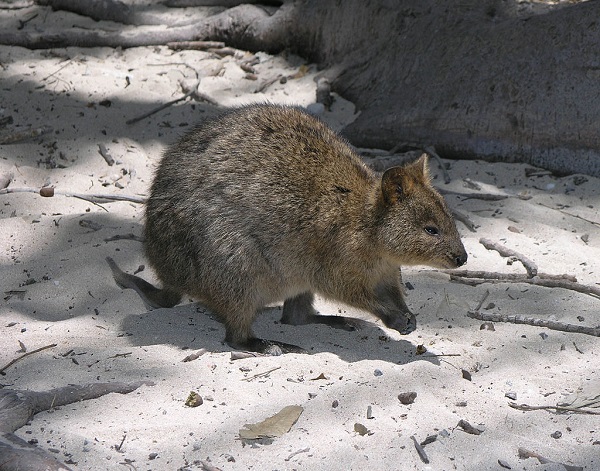Cruise Passengers to be Quarantined with Quokkas
Australians disembarking from cruise ships in Fremantle, Western Australia, will be required to spend 14 days in quarantine on Rottnest Island - a famous tourist destination for the “quokka selfie” phenomenon.
The 800 Australians on board the Vasco da Gama are due to be ferried to the island on Friday. Rottnest Island is about 19 square kilometers (7.3 square miles) and is located 20 kilometers (11 miles) from Fremantle. It is a tourist destination renowned for its beaches and for the marsupial, the quokka. The passengers undergoing quarantine will be housed in tourist accommodation.

Foreigners, including passengers from New Zealand and the U.K. will remain on the ship until they are flown home.
There are currently two other cruise ships off the Western Australian coast: the Magnifica and the Artania. The Magnifica reportedly has 250 unwell passengers on board and has been allowed to refuel in Fremantle without allowing passengers to disembark. However, she has now been denied access to her next planned stop in Dubai.
The Artania has also reported 25 unwell passengers - a passenger that has already left the vessel has tested positive for COVID-19.
So far, about a quarter of COVID-19 cases in Western Australia have been linked to cruise ships, and the government there has been critical of how the New South Wales government handled the arrival of the Ruby Princess. “I won’t allow what happened in Sydney to happen here. That was a complete and utter disaster,” said Western Australian Premier Mark McGowan.
Over 130 passengers allowed off the Ruby Princess in Sydney on March 19 have tested positive for COVID-19. One died earlier this week, bringing Australia's COVID-19 death toll to eight. The vessel had been considered low-risk, and the 2,700 passengers were allowed to travel home as normal but asked to self-isolate for 14 days.
The Ruby Princess departed Sydney on March 8 on a round-trip journey to New Zealand. On her return, New South Wales Health requested a log of details of passengers and crew presenting with fever or acute respiratory symptoms along with any test results. The senior doctor on the Ruby Princess notified New South Wales Health that viral swabs had been collected for a few cases of febrile influenza - negative tests - and that those people had been isolated. The doctor also requested an ambulance transfer for a couple of passengers who had other unrelated illnesses.
Australian Border Force (ABF) Commissioner Michael Outram responded to criticism of his department for allowing passengers to then disembark, saying that human biosecurity was the responsibility of the Department of Agriculture. “New South Wales Health responded to the Ruby Princess and stated, and I quote: the New South Wales Health panel has assessed the Ruby Princess as not - I say not - requiring on-board health assessment in Sydney. New South Wales Health requested that Ruby Princess send the 15 samples to New South Wales Health lab for COVID testing and attach lab forms as required. New South Wales Health stated to the Ruby Princess, and I quote again: you are free to disembark tomorrow. However, in accordance with the new Australian Government guidance all passengers must go into self-isolation for 14 days - I end that quote.”

that matters most
Get the latest maritime news delivered to your inbox daily.
So, when the vessel came in to port on March 19, six ABF officers and four Department of Agriculture officials boarded the vessel, but there were no New South Wales Health officials present. Yet, says Outram: “Look, we're all in this together here in Australia, let's be honest. We have to work together. We don't want to be standing around, pointing fingers at each other, apportioning blame. But the public need to know facts. That's why I've come out and stated facts today. People can make their own minds up about what went wrong and no doubt, further down the track, there'll be lots of inquiries about what happened and who said what to who and who sent what emails.
“But for now, what I'd like to do is carry on working with the state and territory health departments, the police, the governments, industry and others and our communities to get through this really difficult time.”
